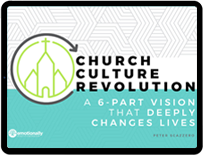4 Steps to a Meaningful Sabbath
All work — paid and unpaid — is good, but it needs to be boundaried by the practice of Sabbath. The problem with too many leaders is that we allow our work to trespass on every other area of life, disrupting the balanced rhythm of work and rest God created for our good. Sabbath is a twenty-four-hour block of time in which we stop work, enjoyrest, practice delight, and contemplate God. 1. Stop. Sabbath is first and foremost a day when we cease all work — paid and unpaid. On the Sabbath we embrace our limits. We let go of the illusion that we are indispensable to the running of the world. We recognize we will never finish all our goals and projects, and that God is on the throne, managing quite well in ruling the universe without our help. 2. Rest. Once we stop, we accept God’s invitation to rest. God rested after. Read more.





